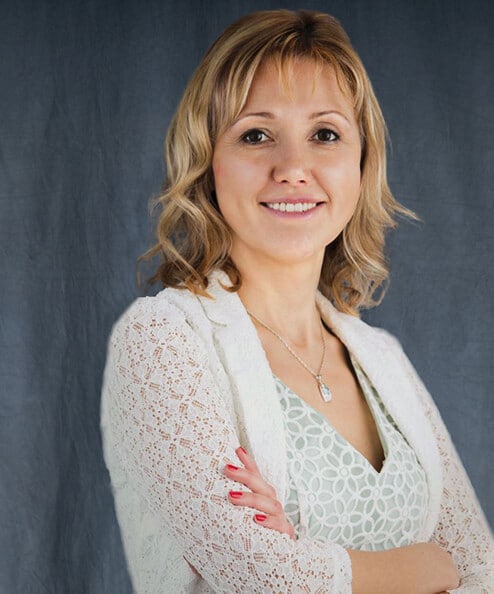Restructuring in the consumer goods sector: tailoring teams to Baltic markets
Tallinn, Estonia – Global Fast-Moving Consumer Goods companies need to have strategic presence in every country – or to be more precise, the physical availability of their best-known brands in stores (numeric and weighted distribution as key KPIs) is crucial. Although e-commerce in consumer goods is constantly developing, and represents a priority for corporate management teams across the globe, physical stores will remain important for the foreseeable future, and so consumer goods companies will need to be represented there in one way or another.

Estonia, Latvia and Lithuania are tiny nations, both regionally and globally, and the Baltic area as a whole is still small. Although locals know the differences between Baltic cultures and economies, these differences are minor from a global perspective, and corporations make centralised decisions based on the size and growth potential of their business in the region.
In the 90s, global consumer goods brands entered the Baltic markets with the intention of establishing local entities in all three countries. Many companies entered the market by using a distributor to establish the business and sense future opportunities, with the subsequent establishment of a local business entity with its own sales and marketing teams. Sales and profits boomed, and everyone was happy...until the 2007 financial crisis and subsequent recession. Since then, there has been pressure for improved efficiency and effectiveness in business, including the optimisation of human resources.
Every regional or international company doing business in the Baltics has faced a simple challenge: how to find the ideal combination of local headcount and remote management to ensure the presence of their brands on the market, to understand the behaviour of local consumers in order to target them effectively, to secure a fair share of the market, and to ensure a healthy business model in order to manage the growth and earnings expectations of the stakeholders.
In recent years, most consumer goods companies have experimented with different local structures. However, nobody has yet found the perfect mix, and changes continue to be made without consistently satisfactory results being achieved. Some companies have made the bold move of closing every Baltic office and handing the management of the business over to distributors, while some have consolidated into a single Baltic office with the assumption that Lithuania, Latvia and Estonia can all be served in the same way, and others are trying solutions somewhere in between. Despite the wealth of options, the challenge remains – what business model is best for the Baltic states? What is the best practice to learn from and follow? As structural changes continue to be made, it seems that nobody has found the perfect solution yet. Of course, corporate decisions depend on the KPIs and targets set by each individual company. While every company's agenda focuses on growth and profit, companies may have very different priorities in terms of the compromises they wish to make, and to what extent. However, there are notable similarities in the approaches taken by many international companies.
As the world continues to rapidly change, organisational structures need to be updated, and companies must keep up with market trends. But how often is too often, and how seldom is too seldom? Every year, every five years or somewhere in between? Corporations need to look at scale and growth opportunities when making strategic restructuring decisions. Like it or not, the ugly truth is that these decisions have direct short-term impacts on the business – change management, job insecurity, transitional instability, tension between new and experienced team members and the like. However, long-term positive effects are possible if the new structure is properly planned and analysed, with local management teams included in the decision-making process. These local management teams are a particularly crucial and often underestimated asset – corporate headquarters are based in major markets, and nobody realises the challenges and complexity of small markets (the three different Baltic languages, for a start) better than an experienced local team.
There are two relevant quotes that I like: "Culture eats strategy for breakfast" and "The retail business is a detail business." Small details matter (e.g. cultural differences and business specifics) but it is common for these details to be omitted from the new structure in the hope that they will disappear or somehow resolve organically. However, small details can often become bottlenecks – customers want to talk in their local language and be confident that you understand their markets and business, and this is impossible to do at a distance. Even pan-Baltic customers are subject to local market differences!
Of course, there is an element of risk in every change, and it is not possible to foresee every pitfall. However, the chances of success are improved by employing strategic planning and analysis with an eye to the bigger picture, and involving local experts as far as possible – to use an old Estonian saying: "Measure nine times, cut once!" Success in the Baltics depends on finding the perfect staffing balance with minimal disruption – or to put it another way, while you are struggling with internal organisational changes, your competition is out there talking to your customers. Strong, experienced teams and solid business models are the best way to ensure growth for today and tomorrow.
 Kairi Raudmets is the Country Manager for Estonia at Pedersen & Partners. Ms. Raudmets brings to the firm more than two decades of in-depth functional sales and marketing expertise in the FMCG and Travel & Leisure industries. Prior to joining Pedersen & Partners, Ms. Raudmets spent 11 years with global food products manufacturer Mars – creating, recruiting, leading, and developing multicultural and often remote sales and marketing teams in the Baltics. She managed business in Estonia, drove customer and category management in the Baltics and contributed to the regional business growth as a member of the leadership team. Ms. Raudmets started as a Key Account Manager, was promoted to Country Sales Manager for Estonia and eventually became the Customer Marketing Manager for the Baltics. Her professional career began in the Travel & Leisure industry, where she held roles with travel services providers and an international hotel chain.
Kairi Raudmets is the Country Manager for Estonia at Pedersen & Partners. Ms. Raudmets brings to the firm more than two decades of in-depth functional sales and marketing expertise in the FMCG and Travel & Leisure industries. Prior to joining Pedersen & Partners, Ms. Raudmets spent 11 years with global food products manufacturer Mars – creating, recruiting, leading, and developing multicultural and often remote sales and marketing teams in the Baltics. She managed business in Estonia, drove customer and category management in the Baltics and contributed to the regional business growth as a member of the leadership team. Ms. Raudmets started as a Key Account Manager, was promoted to Country Sales Manager for Estonia and eventually became the Customer Marketing Manager for the Baltics. Her professional career began in the Travel & Leisure industry, where she held roles with travel services providers and an international hotel chain.
Pedersen & Partners is a leading international Executive Search firm. We operate 56 wholly owned offices in 52 countries across Europe, the Middle East, Africa, Asia & the Americas. Our values Trust, Relationship and Professionalism apply to our interaction with clients as well as executives. More information about Pedersen & Partners is available at www.pedersenandpartners.com
If you would like to conduct an interview with a representative of Pedersen & Partners, or have other media-related requests, please contact: Diana Danu, Marketing and Communications Manager at: diana.danu@pedersenandpartners.com
